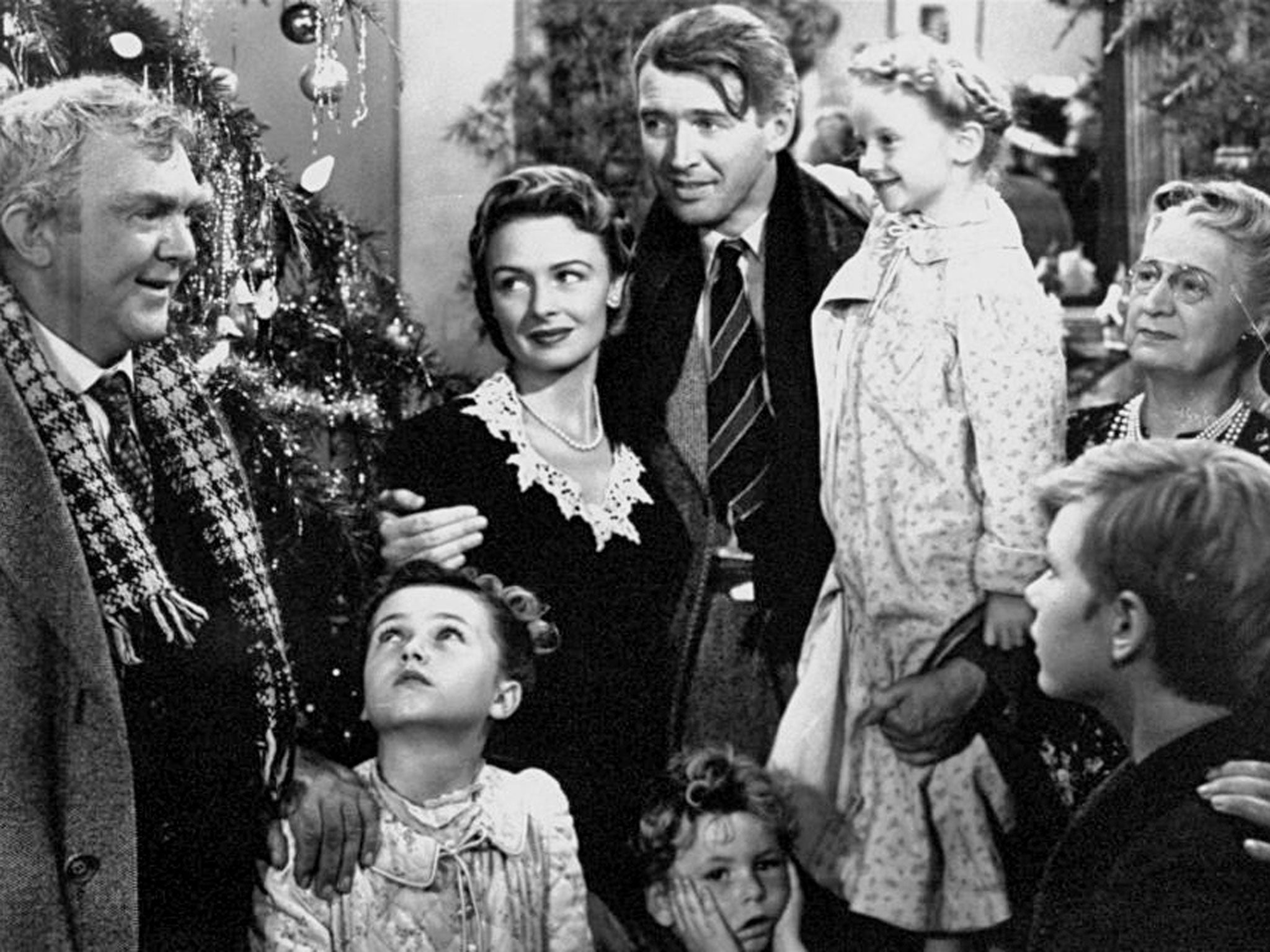'It's a Wonderful Life' was once considered communist propaganda by the FBI
J Edgar Hoover’s Communist agents thought it was a Trojan horse sneaking anti-American propaganda to the masses

Your support helps us to tell the story
From reproductive rights to climate change to Big Tech, The Independent is on the ground when the story is developing. Whether it's investigating the financials of Elon Musk's pro-Trump PAC or producing our latest documentary, 'The A Word', which shines a light on the American women fighting for reproductive rights, we know how important it is to parse out the facts from the messaging.
At such a critical moment in US history, we need reporters on the ground. Your donation allows us to keep sending journalists to speak to both sides of the story.
The Independent is trusted by Americans across the entire political spectrum. And unlike many other quality news outlets, we choose not to lock Americans out of our reporting and analysis with paywalls. We believe quality journalism should be available to everyone, paid for by those who can afford it.
Your support makes all the difference.Every holiday season, millions of people cozy up near a warm fireplace or at least a warm television to watch a familiar black-and-white tale, the 1946 classic “It's a Wonderful Life.”
The film, which director Frank Capra considered his best, follows the down-on-his-luck George Bailey. He's a businessman in the fictional town of Bedford Falls, who is about to lose his loan company to the rich, evil banker Mr. Potter. Bailey considers committing suicide on Christmas Eve, deciding his family and the townspeople would be better off without him. But a guardian angel appears. The angel presents Bailey an alternative timeline in which he doesn't exist, showing the suicidal man how much he's helped those around him.
With stars Jimmy Stewart and Donna Reed, the movie was a commercial and critical success, earning five Oscar nominations, including one for best picture. In 1990, the Library of Congress inducted the film into the National Film Registry. It's the perfect flick for the holidays: a touching story of how our actions affect everyone around us, and how everyone is an integral part of a community's fabric.
The FBI didn't see it that way.
Instead, J Edgar Hoover's Communist-hunting agents thought it was a Trojan horse sneaking anti-American propaganda to the masses. This argument was compiled in a memo written by an unnamed special agent in the FBI's Los Angeles field office about "communist infiltration" of the motion picture industry.
From 1942 to 1958, the Los Angeles field office investigated more than 200 movies, fearing they had been turned into weapons of communist propaganda, as John A Noakes wrote in "The Cold War and the Movies." The FBI generally looked into films connected to personalities associated with the Communist Party, which is what drew them to "It's a Wonderful Life."
The FBI claimed that two of its screenwriters, Frances Goodrich and Albert Hackett, "were very close to known Communists and on one occasion in the recent past . . . practically lived with known Communists and were observed" eating lunch every day with "known Communists."
So an agent watched the movie and wrote a report claiming it "represented a rather obvious attempt to discredit bankers."
For example, the report said, the film cast Lionel Barrymore as Mr. Potter, the "'scrooge-type' so that he would be the most hated man in the picture." On its face, that's true: the plot wouldn't work if the crowd were cheering for Potter to repossess Bailey's business. But, the FBI agent claimed that according to "informants," this was "a common trick used by Communists."
The report claimed the movie "deliberately maligned the upper class, attempting to show the people who had money were mean and despicable characters."
The FBI argued the movie could have portrayed Mr. Potter as "following the rules as laid down by the State Bank Examiners in connection with making loans."
Though the film was deemed subversive, not much came of the investigation. The FBI gave a report to the House Un-American Activities Committee, an investigative subcommittee of the House of Representatives established to suss out organizations and individuals with suspected communist ties. But HUAC, as it was called, chose not to take any action and allowed the movie to keep playing, according to Smithsonian magazine.
While the suspicion of the film was typical for the FBI during that era, a movie as popular as "It's a Wonderful Life" will always launch a thousand interpretations.
For example, Birmingham City University criminology professor David Wilson wrote in the Guardian that he pops open a bottle of wine and watches the movie without his family every year because it's "the closest an atheist can get to heaven." Wilson called it "the least religious but most humanist film that you could ever see."
On the other hand, Anne Morse wrote in the Christian Post the movie is "a magnificent cinematic depiction of the words of Jesus: 'For what will it profit a man if he gains the whole world and forfeits his own soul?' (Matthew 16:26)."
© Washington Post
Subscribe to Independent Premium to bookmark this article
Want to bookmark your favourite articles and stories to read or reference later? Start your Independent Premium subscription today.
Join our commenting forum
Join thought-provoking conversations, follow other Independent readers and see their replies
Comments